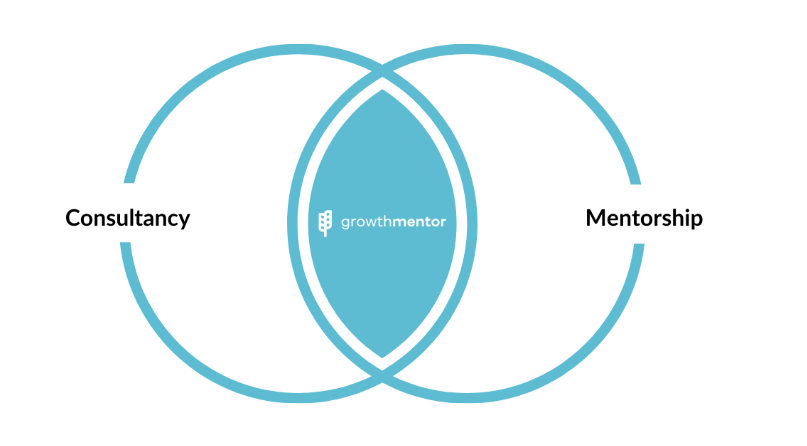Everything you need to know about finding the perfect business mentor
Finding a business mentor is important. Too many people put off finding a mentor, lying to themselves by saying that it’s not a high priority with so many other jobs to do. But as entrepreneurs (and mentors) ourselves, we also know the value of ensuring that you have a mentor.
The long-term cost of not finding a good mentor far outweighs any short-term costs.
Mentors can help you to become the best possible version of yourself. They can also guide you through difficult patches when you’re struggling to make decisions or lacking the experience to know in which direction to take your company.
At the same time, not all mentors are created equal, and it falls to you to be able to spot the good from the bad. If you get it wrong, you risk them leading you in the wrong direction.
The good news is that the benefits of finding a business mentor far outweigh any negatives, and if you’re anything like us then once you get started with mentorship, you won’t be able to look back. So if you’ve ever thought about looking for a mentor but you haven’t known where to start, this article is for you.
Here’s everything you need to know about finding the perfect business mentor.
What is a business mentor?
A business mentor is essentially a trusted advisor who you turn to for help. Different types of mentor fulfil different needs, which makes sense – after all, you wouldn’t ask a marketing expert for help with your finances or turn to a blockchain developer for a second opinion on your business plan.
The goal of hiring a business mentor is usually to benefit from their expertise without having to hire them as a full-time member of the team. They can help with personal development and even just act as a sounding board as you talk through your ideas.
Good business mentors guide the conversation, helping you to arrive at insights on your own instead of just telling you what to do. They can also listen to what you’re saying and provide feedback and responses.
The importance of having a business mentor
We’ve already covered a few of the main reasons why having a business mentor can help small business owners, but those aren’t the only benefits.
On the one hand, we have the softer benefits, like the fact that entrepreneurs often feel like they have to do everything alone and having a mentor can make it feel like someone has your back. On the other hand, we have the more measurable benefits. The data and the research doesn’t lie:
- In a five year Gartner study of 1,000 employees, 25% of those who enrolled in a mentoring program received a salary change, compared to only 5% for those who didn’t.
- A study in the Journal of Applied Psychology concluded that people with mentors are also more likely to receive promotions.
- Another study of 1,300 US Army officers found that mentorship was able to reduce the likelihood of turnover by 38%.
According to MENTOR: The National Mentoring Partnership, “Those who receive mentorship are more likely to see improved academic, social and economic prospects. EVERY mentorship matters.”
That’s their emphasis, not ours.
What a business mentor does
Different business mentors do different things, but as a general rule they’re your first port of call when it comes to the big ideas. There’s no need to trouble them with the little things, the day-to-day stuff, unless you’re working with an entrepreneur with hard technical skills who can give you pointers.
The best business mentors offer overall business experience with a certain amount of specialisation. What this specialisation looks like will vary, but perhaps they have experience in your industry or they have a reputation for working with startups.
These specialisations are formed from the histories of any given mentor, and indeed they’ll be able to back it all up with proven experience from earlier on in their career. Just a few of the main qualities to look out for in a business mentor include:
- Versatility: The ability to provide input and advice across a wide range of different situations and scenarios. As a general rule, the more versatile your mentor is, the more they’ll be able to help.
- Approachability: If you don’t feel comfortable approaching your mentor with your business problems, it’s a sign that you should look for another one.
- Availability: For mentors to be able to help, they need to have time available to actually talk to you.
- Attitude: Most mentors only agree to take on the job because they want to help other people to achieve their full potential. Make sure the same is true of yours.
- Experience: If your mentor doesn’t have proven experience in the things that they’re giving you advice on, you should take everything they tell you with a pinch of salt.
- Humility: One of the best traits a mentor can have is humility, because it allows them to talk about their own personal experiences, including any failures, so you can learn from them.
Related: Everything you need to know about entrepreneur mentorship.
What to talk about with your business mentor
When talking with your business mentor, the sky’s the limit. The important thing is to establish expectations early on and to constantly check in on them. For example, asking your mentor for relationship advice might make sense if they’ve known you for twenty years, but it’s weird if you’ve only just met them.
At the same time, you don’t want to become too focussed and narrow-minded, because you might miss out on other insights. Let’s say that you’re working with a mentor who’s helping you to expand into Asia. If they spot an opportunity for you to streamline your supply chain process, you’re going to want them to let you know.
Speaking of expectations, it can help if you plan your mentorship sessions in advance, even if that means writing up a schedule and an itinerary for every session and following that up with detailed notes on what you talked about.
Remember, most mentors are busy people – if you want your relationship to be long and prosperous, you need to respect their time and avoid wasting it. Don’t just call them up for a chat – plan what you’re going to talk about beforehand.
Questions to ask a business mentor
The questions you’ll want to ask will vary depending upon which stage you’re at and what you were able to ascertain from your research. If you’re meeting for the first time then you’ll want to focus on getting to know them and understanding whether they could be a good fit for you and your business.
This involves asking questions like:
- What experience do you have in my industry?
- How can I help you?
- What’s your purpose in life and in business?
- Do you think you can help me?
When you start working with a mentor, it’s all about finding and following the advice that’s going to have the biggest impact. You might still be getting to know them too, but by this point there’s also a commitment to ongoing mentorship.
Common questions at this stage include:
- What’s the first thing you would do if you were me?
- What mistakes did you make when you were in my position?
- What do you think of my short-to-medium-term business plan?
- Is there anything that we’re doing wrong?
Once things have started to settle down and working with your mentor has become second nature, it’s time to start asking the forward-thinking questions and working on the long-term vision.
Questions here include:
- How can we future-proof my company?
- Do our day-to-day operations reflect our values and our vision?
- Where should we focus our research and development?
- Which hot topics should I try to learn more about?
Need more cues? Get some inspiration with these 47 questions to mentors based on real-life questions asked by the GrowthMentor community.
Finding a business mentor near you vs online
When you’re searching for a business mentor, you have two main options: you can either look online or you can tap into your in-person network. Both approaches have their advantages and disadvantages.
Advantages of a local mentor:
- You can meet up in-person and even become friends
- You may be able to obtain introductions from your professional contacts
Disadvantages of a local mentor:
- You’re limited to only the expertise from the local area
Advantages of an online business mentor:
- Can be contacted via any device with an internet connection
- A global talent pool is available
- Access to specialists/subject matter experts
- Generally easier to find a virtual mentor
Disadvantages of an online business mentor:
- Differing time zones can cause complications
- It’s harder to have brainstorms and round table sessions
Should you pay for your business mentor?
This isn’t a question with an easy answer, but we’ll do our best to give it a go. It comes down to what your mentor is able to offer you, and whether you think the expense will deliver a return on investment.
It can also depend upon the relationship you have with your mentor – if they’re a family friend then they might be willing to do it for free.
Most mentors are hugely successful in whichever field they’re in. If someone’s charging consultancy fees of $100/hour and you expect them to mentor you for free, you need to somehow provide them with $100/hour worth of value or they’re out of pocket.
Talking money isn’t always an easy thing to do, especially when you’re asking someone to be your mentor and you’re already putting yourself out there. Still, it’s an important discussion to have early on in your relationship so that all parties are able to manage their expectations.
If you find a mentor who’s willing to work with you for free, that’s great – but don’t be surprised if they expect to be paid, either. As with most things in life, you get what you pay for.
How much do business mentors charge?
Well that depends – how long is a piece of string?
Seriously, though, there’s no single set rate for mentorship, in the same way that there’s no single set rate for hiring a Python developer or a Facebook Ads consultant. Different specialists charge different rates depending upon a range of factors including their experience and their capabilities.
Below is a table showing the rates that mentors charge on GrowthMentor just to give an indicator of trends we’re pricing trends for mentors.
| Rates | % of Mentors on GrowthMentor |
| Free | 65% |
| Under $50/hour | 11% |
| $51-100/hour | 23% |
| +$100/hour | 1% |
As a general rule, you can expect to pay your mentor a little less than they might charge with their regular consultancy fees. This is because mentorship also offers benefits to the mentors themselves, above and beyond any money they might bring in.
With that said, don’t expect mentors to come cheap, either. Just think of it like this: you’re paying for all of their years of experience, learning and expertise. Good employees don’t come cheap either, but they’re worth investing in.
Luckily, a good mentor is more than worth the rate they charge, and they can often pay for themselves by saving you time and resources by pointing your company in the right direction.
What the greats say
Of course, we’re not asking you to take our word for it. Having a business mentor isn’t a new phenomenon, and thousands of super successful businessmen from throughout the years got their start by having a mentor.
An early example of mentorship was Alexander the Great, who was mentored by Aristotle – who was mentored by Plato, who was mentored by Socrates. So you could say there’s something in it.
In fact, according to Samuel Smiles, “Alexander the Great valued learning so highly that he used to say he was more indebted to Aristotle for giving him knowledge than to his father Philip for life.”
Quotes about business mentorship
- “A mentor is someone who allows you to see the hope inside yourself.” – Oprah Winfrey
- “Colleagues are a wonderful thing, but mentors – that’s where the real work gets done.” – Junot Diaz
- “A mentor is someone who sees more talent and ability within you than you see in yourself and who helps bring it out of you.” – Bob Proctor
- “I look at where I am today and realise that most of my success is owed to the mentors that were in my life.” – Kendrick Lamar
- “The truth is we’re all searching. We’re all looking for guidance, for mentors.” – Jason Momoa
- “The mind is not a vessel to be filled, but a fire to be kindled.” – Plutarch
- “The delicate balance of mentoring someone is not creating them in your own image, but giving them the opportunity to create themselves.” – Steven Spielberg
- “You cannot teach a man anything. You can only help him discover it within himself.” – Galileo Galilei
- “Our chief want in life is somebody who will make us do what we can.” – Ralph Waldo Emerson
GrowthMentor
By now, you should have a good idea of why mentorship is so important and why so many of today’s professionals are turning to mentors to get a leg up on the competition. The next step is for you to start thinking about whether you yourself could benefit from mentorship, or even whether you might have what it takes to act as a mentor for someone else.
If mentorship is something that you’d like to learn more about, you’ve come to the right place. Here at GrowthMentor, we pride ourselves on our ability to act as the go-between for talented mentors and the inspiring individuals who can benefit the most from their insights.
Even a single session can be enough for you to talk through your ideas and to get a little feedback, although we’re willing to bet that after your first mentorship session, you’ll be hooked.
So if you’re ready to find out more about mentoring or being mentored, browse through our mentors’ list, check out how it works, and get in touch with us. We look forward to helping you to unlock your full potential.











